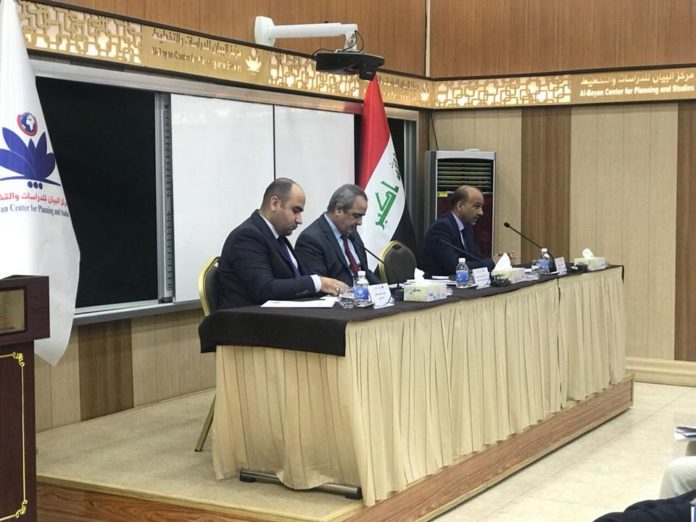Al-Bayan Center hosted the Dean of College of Law \ University ofAl-Qadisiyah Dr. Miry Khadim Abaid and professor of comparative politics in the College of Political Science \ University of Bagdad Dr. Abd Al-Jibar Ahmed Abd Allah. Together, they assessed the legal and political aspects of decentralization and avenues for enhancing its implementation on Saturday, 1 September 2018.
Dr. Miry covered several legal obstacles that halt proper implementation of decentralization, including the legislative powers of provincial councils which run counter to the principle of Administrative Decentralization, enshrined in the Iraqi Constitution; the equal treatment of “regions” and “provinces” despite the former is a political entity and the latter is administrative entity, which resulted in provincial councils that enjoy political powers, affecting service delivery adversely.
Dr. Miry highlighted several reforms that the government adopted such as the abolishment of local councils, however, he called for a comprehensive review of the legal framework of decentralization and the reliance on local experts, think tanks, and research entities to legislate new laws that address the conflicting provisions within the 2005 Iraqi constitution.
On the other hand, Dr. Abd Al-Jibar addressed the political aspect of decentralization in light of political culture. He attributed the failure of provincial councils to the absence of supporting political culture for decentralization, which has been materialized on several crucial aspects, including:
- Decision of Paul Bremer number 71, which equalized the status of regions and provinces.
- The conflicting agenda of political factions that participated in the writing of the current constitution.
- The vertical implementation of decentralization by provincial councils towards each other and even towards the central government, in contrast to the principles of decentralization which requires horizontal relationship among provincial councils and vertical relationship between the center and peripheries. This highlight the potential threats of division and secession.
- The chaotic nature of relationship among different governmental levels (federal, regional, and provincial). This has led to severe political crises and free riding problem, where each level blame other levels for the lack of service delivery.
Therefore, Dr. Abd Al-Jibar recommends a comprehensive review of decentralization too, calling for further workshop as platform to gather governors, members of provincial councils, and academic, as well as, international organization with the goal of reaching recommendation on enhancing the implementation of decentralization and advocate for their adoption.















